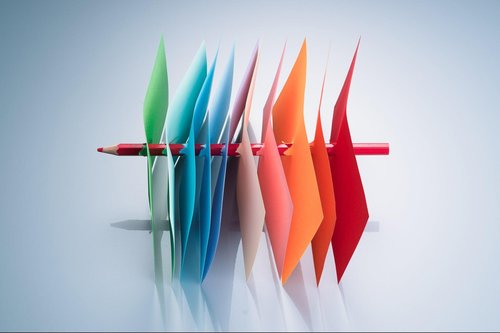
What does productivity mean to you?
Like, literally? What does it mean for you to have a productive day?

Getty Images
Here’s my answer, which is typical: “Productivity” means I complete a list of tasks. That’s because I organize my day around my to-do list, and I feel productive when I check stuff off.
But what if…there’s another way to look at it?
“To me, productivity is about energy management — not time management,” says my friend Katherine Morgan Schafler, a psychotherapist and author of the great book The Perfectionist’s Guide to Losing Control .
To appreciate that, start by considering the days when you are not productive. Why didn’t you finish more tasks? “It’s not really because we run out of the time to do them,” Katherine says. “We run out of the energy to do them.”
That’s why we must reframe our idea of productivity. Katherine first encountered this in the work of consultants Tony Schwartz and Catherine McCarthy, and she said it changed her life. Consider it: What if productivity is about managing your energy , not just about managing your time ? What if it’s about doing things to keep ourselves functional tomorrow — not just burning ourselves out trying to maximize today?
When we think this way, many “unproductive” things suddenly become productive. Sleep is productive. A bike ride is productive. Sharing your new favorite songs with a friend is productive. “Just one hour of premium-quality energy,” Katherine says, “is going to serve you better than 10 hours spent doing something resentful, rushed, exhausted, confused, disoriented in some way.”
When Katherine told me all this, I replied, “Look, this makes sense. I relate to it. But also, entrepreneurs might have 12 hours to complete 14 hours’ worth of tasks. What is someone to do when they feel a crushing weight of responsibility, and the only way to get things done is to relentlessly do them?”
Katherine’s response changed the way I think. She said, “What’s the point of building something if you can’t maintain it?”
Let it sink in.
I was recently at a bar with an entrepreneur friend. He’s wildly stressed. He has new ideas for products — including one that I think can make him a lot of money, and save him a lot of time, and make his life a lot more manageable. But he struggles to explore this great new idea because he’s so consumed with other commitments. He doesn’t want to give any of it up, even as he reaches a breaking point.
To which I said, with credit to Katherine, “What’s the point of building something if you can’t maintain it?”
My friend paused. “You’re right,” he said.
Are there times when we must work hard? Work to exhaustion? Sure. But the point is to build a system — or at least, make sure we’re building toward a system — that doesn’t demand relentlessness. The point is to build something we can maintain.
If you read this magazine, it’s probably because you are a task-oriented person. I am too. I don’t think a lot about energy, truth be told. But I heard Katherine’s words when I needed them — because I have been working nearly nonstop for months, and that has meant seeing fewer friends, taking fewer walks, and reading fewer things. I once thought I could do this forever if I needed to, but I was starting to realize that I couldn’t, and now it also occurs to me that I don’t have to.
That’s why, more recently, I’ve had lunch with old and new friends — right there, in the middle of the afternoon, while tasks could otherwise be completed! I’ve gone on hour-long walks. I have just…taken some time.
Today, tomorrow, two days from now, whenever you can manage it — step away for a moment. Do something that doesn’t feel “productive.”
And then tell yourself: Yes, this is productive.
Enjoy Entrepreneur Magazine on your terms. For just $10.99, get 1-year of the print edition delivered straight to your mailbox and 1-year instant access to the digital edition on your mobile device. Subscribe Now!
Comments are closed.
